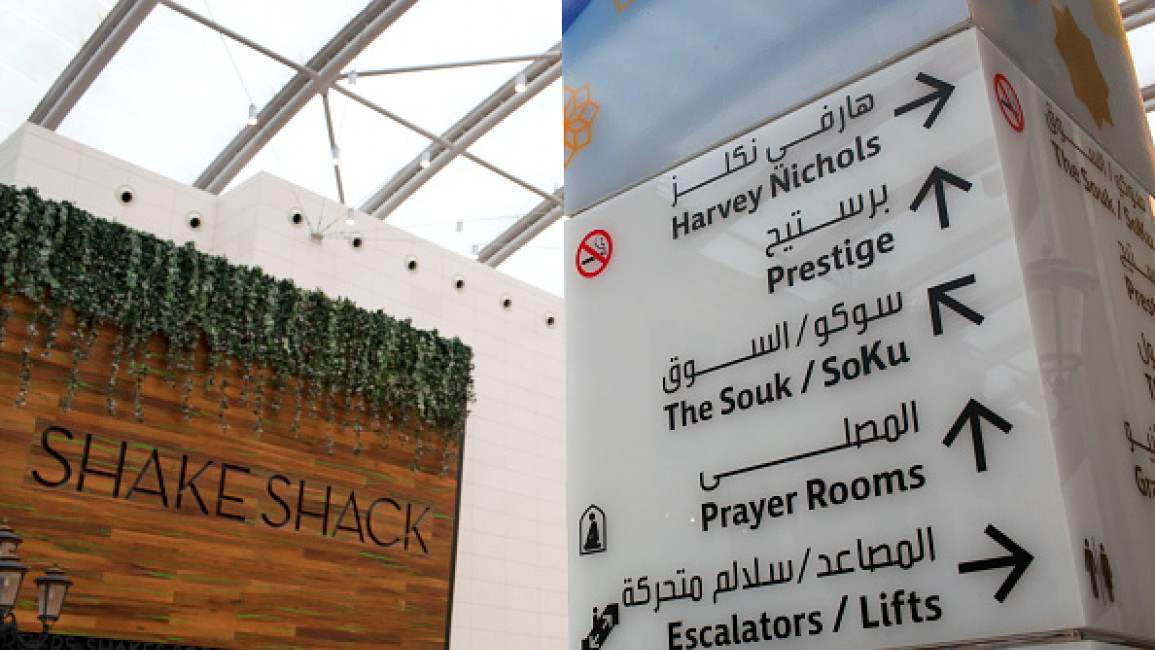After Starbucks, McDonalds, calls to boycott Shake Shack over Israel launch amid Gaza war
Pro-Palestinian voices are calling for a boycott of US-owned fast food franchise Shake Shack in the Middle East and around the world, following its recent debut in Israel, as similar Gaza war-linked boycott drives hit American brands like Starbucks and McDonalds over their perceived support for Israel.
Both brands' owners deny the accusations while Shake Shack is yet to comment.
The Israel Shake Shack launch last week has been denounced as tone-deaf: While Gazans starve a few dozen miles away due to Israeli siege tactics, Israelis are joining long queues to get burgers from the new branch in Tel Aviv.
Gaza and Tel Aviv are just a 1.5 hour drive apart but couldn’t be farther away from each other. While Palestinians are starving, Israelis are lining up for burgers at the new Shake Shack. This dissonance is a major obstacle to resolving this crisis.
— Mairav Zonszein מרב זונשיין (@MairavZ) March 6, 2024
Shake Shack began as a hot dog cart by renowned restaurateur Danny supporting a New York City park revitalisation project but in just two decades, it has become a global fast-casual dining empire.
Shake Shack, known for its gourmet burgers, crinkle-cut fries, and creamy milkshakes, now boasts hundreds of locations across the world including in Arab countries, through Kuwait-based franchising empire Alshaya Group, which also owns the franchise for hard-hit Starbucks in the region.
Starbucks and McDonalds Boycott
This week, AlShaya Group was moving to lay off over 2,000 people as the business suffers from consumer boycotts linked to the Gaza war.
The cuts, which began on Sunday, amount to about four percent of AlShaya's total workforce of almost 50,000 people and are mostly concentrated in its Starbucks franchise in the Middle East and North Africa, according to Reuters.
"As a result of the continually challenging trading conditions over the last six months, we have taken the sad and very difficult decision to reduce the number of colleagues in our Starbucks MENA stores," AlShaya said in a statement.
Western brands have been hit by a largely spontaneous, grassroots boycott campaign over Israel's war on the Gaza Strip.
In the wake of the boycotts, Starbucks in October said it was a non-political organisation and dismissed rumours it had provided support to the Israeli government or army.
Starbucks said in January that the Gaza war had hurt its business in the region as it missed market expectations for first-quarter results.
It said sales were significantly impacted due to the war, in the Middle East and in the United States, as some consumers launched protests and boycott campaigns asking the company to take a stance on the issue.
In January, the CEO of McDonald's said that the fast food franchise's business in the Middle East region has been hurt by boycotts carried out in protest of the company's perceived support for Israel in its war on Gaza.
Chief executive Chris Kempczinski claimed that "misinformation" was fuelling the boycott campaigns that were "harming operations" for the business.
Pro-Palestinian activists encouraged a boycott of McDonald’s after it was revealed that its franchise in Israel was handing out free meals to thousands of Israeli soldiers at the start of Tel Aviv's air and ground assault on the Gaza Strip, which has so far killed over 22,000 Palestinians.
The Boycott, Divestment and Sanctions (BDS) movement, a Palestinian grassroots campaign that lists which companies ought to be boycotted and why, listed McDonald’s as an "organic boycott target", saying that the fast food chain "is profiting from the Genocide of the Palestinian people".
McDonald's later claimed that it has "no position" on the deadly war, and that it was not responsible for the actions of its franchisees, who pay the company a fee to license its brand and recipes.
The majority of McDonald's franchisees in the Middle East and North Africa published statements in solidarity with Palestinians at the onset of Israel's military campaign in Gaza, with many pledging to donate to those suffering in the enclave.



